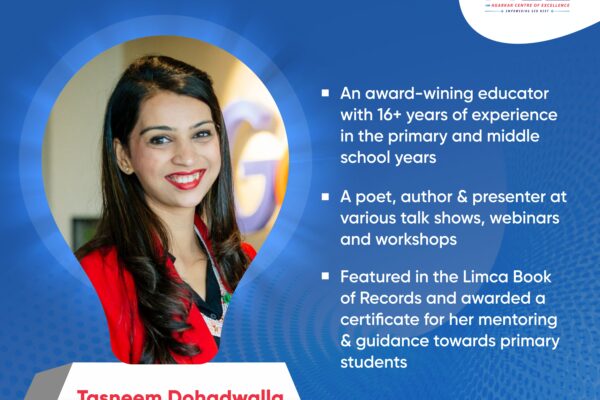Details of State wise Implementation Plans & Processes of the new National Education Policy (NEP) is the overwhelming public response to what the Centre has put out there as a vision document for this country as ‘The NEP 2020’. There are educators who are sceptical about its ‘mass’ appeal, and are worried that the vision and execution gap will take years to bridge, and then there are those that want to simply look at the document and capitalise on its potential – the optimists you may call them. Fact is that there are many positives no matter which side you take, and much has been discussed already and next bit is crucial as States work out their respective machinery in terms of fund allocations, capabilities be it IT or infrastructure, teacher education and yes their own interpretation of the language policy and regulatory guidelines to be issued. In all of this, I do believe we need to carefully consider how the changes are brought in time-tables (at least K-12) to make it more about experiential learning with its core subject focus, life skills and sports integration, or assessments that are built in for success for every child, or for that matter how diagnostic evaluations pan out, hopefully inviting detailed discussions with educators that have been instrumental in creating success stories for children, equally represented by the private and public experience and importantly ringing in changes in bite sized portions and not sweeping changes without the strength to course correct. We need to think through this extensively and also align K-12 with higher education, as early childhood education has finally been recognised as a significant contributor to the future of this country. It links finally?
The macro vision that does not isolate but wants to be more ‘connected’ is something that helps us emerge as a consolidated system of schooling education and for me the 5 (Nursery to Grade 2) plus 3 (Primary Years Grades 3 to 5) plus 3 (Middle Years Grades 6 to 8) plus 4 (High School Years Grades 9 to 12) total of 15 years is definitely more ‘structured’ with the inclusion of early years (the first 3 that were ‘distanced’ now part of a consolidated structure with the earlier 10 plus 2 (Grades 1 to 10 plus Grades 11 & 12) will now have Nursery, Jnr Kg and Snr Kg part of its umbrella. The structure has been working globally and there’s merit in it. At this stage, it needs to be understood if entry points in schools will now change, with pre-schools taking on higher grades. Would some schools start at Grades 3 and conclude Year 12) shifting their focus? Let’s wait and watch what happens. The point of this structure is not to disrupt, it is more to do with what we should have always been thinking – age appropriate. So for the time being, it would leave the discussion points about entry and exit depending on a school’s internal capabilities.
The science behind this structure is also crucial – assigning age appropriate developmental milestones and a seamless transition to the ‘next’ level. Research suggests this break -up may be more relevant now than ever as never in the history of our lives have we experienced schools being shut down world over for such prolonged periods of time as part of a health concern and this means their world as children, as resilient as they may be, and quite frankly they are, has changed and the only speculation ahead one can speak with certainty is that how many years it will take to finally normalise and stabilise. This simply means for some children the next 15 years may be spent in ‘recovery’ (their entire schooling journey!!!) and therefore the approach to their learning must focus primarily on their emotional well being and this may just be achieved with this structure?
Question is that would we as educators liked to have to seen more of this mentioned as a vision document? – I think so. It is a known fact that unless it is a top down approach, most policies fail to deliver the kind of impact that we would like to see. And remember this is not the private sector discussion alone with this vision document (they have been speaking about socio emotional learning forever especially progressive schools), this document is largely to bring the government schools under some sort of ‘benchmark’ that can be monitored, and yes increase enrolments. No one is complaining about this, and a healthier competitive market, with a level playing field allows drives better result. Fact. Checked!
Well coming back to the focus of well being and mental health that is the focus on my article. For me, this structure will work if we think of it from an emotionally secure child who moves from one phase to another and being mentored and nurtured through each of these phases. Someone asked me on a webinar, what my opinion was about different age groups – which was the most crucial or difficult and that really brings up the most significant part – every age group matters, has to be handled by specialised experts, and also being mindful of their ‘maturity’ and ‘developmental’ growth spurts – emotionally. Our communication as adults – educators and parents will have to be mindful of then our expectations of these children and how each age group brings in its own set of challenges and opportunities. And yes learning outcomes may have to be altered to think about this.
Unless the focus is driven on well being and mental health, I worry that this document will become yet another ‘evaluation/assessment’ document and while it focuses on learning as a marked difference from the past, and onus lies with the teachers, are the teachers going to receive the kind of necessary training to equip themselves to manage the emotional needs of students? Would they have to take on mandatory courses, have field experience to learn what to do it, how to do?
At every stage, every age, children will be vulnerable, will need guidance on handling their emotions, and mentoring about consequences for some of their choices. This cannot just be a subject in a class that is taught, this has to be the vision of the school, to emotionally secure the child so India does not becoming yet another staggering statistic on the world map for the most number of students taking drastic steps because someone did not bother with them.
Would I have like to see more of this in the document? Ofcourse yes, but like a fellow educator beautifully pointed out in yet another webinar on Saturday, ‘what’s stopping leaders to implement what they think is important. A vision document is a guide, but the choice lies with you to implement and create for the sake of the children’.
After-all, as educators, the promise was to groom children and that is a huge power we have. And with that comes great responsibility. And the additional responsibility will be about nurturing parents with this new orientation. As adults, the equity partnership lies with the parents as well as teachers and this is when we do return to a physical world as well. This partnership is not about ‘lock-down’ times alone, it is going to be more about unlock down times. It has to be about nurturing well balanced children. It is about our future, and all this effort must therefore be well directed and involve specialists and experts to create the path ahead.
Wellness, wellbeing cannot be side-lined, needs to be a school vision. Suggestion is not to wait for governments to decide this, but you as educators to make the real difference by investing time and effort and building capabilities.












